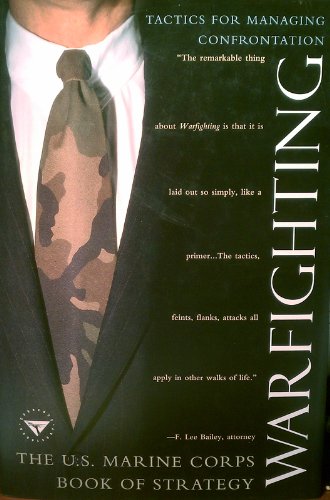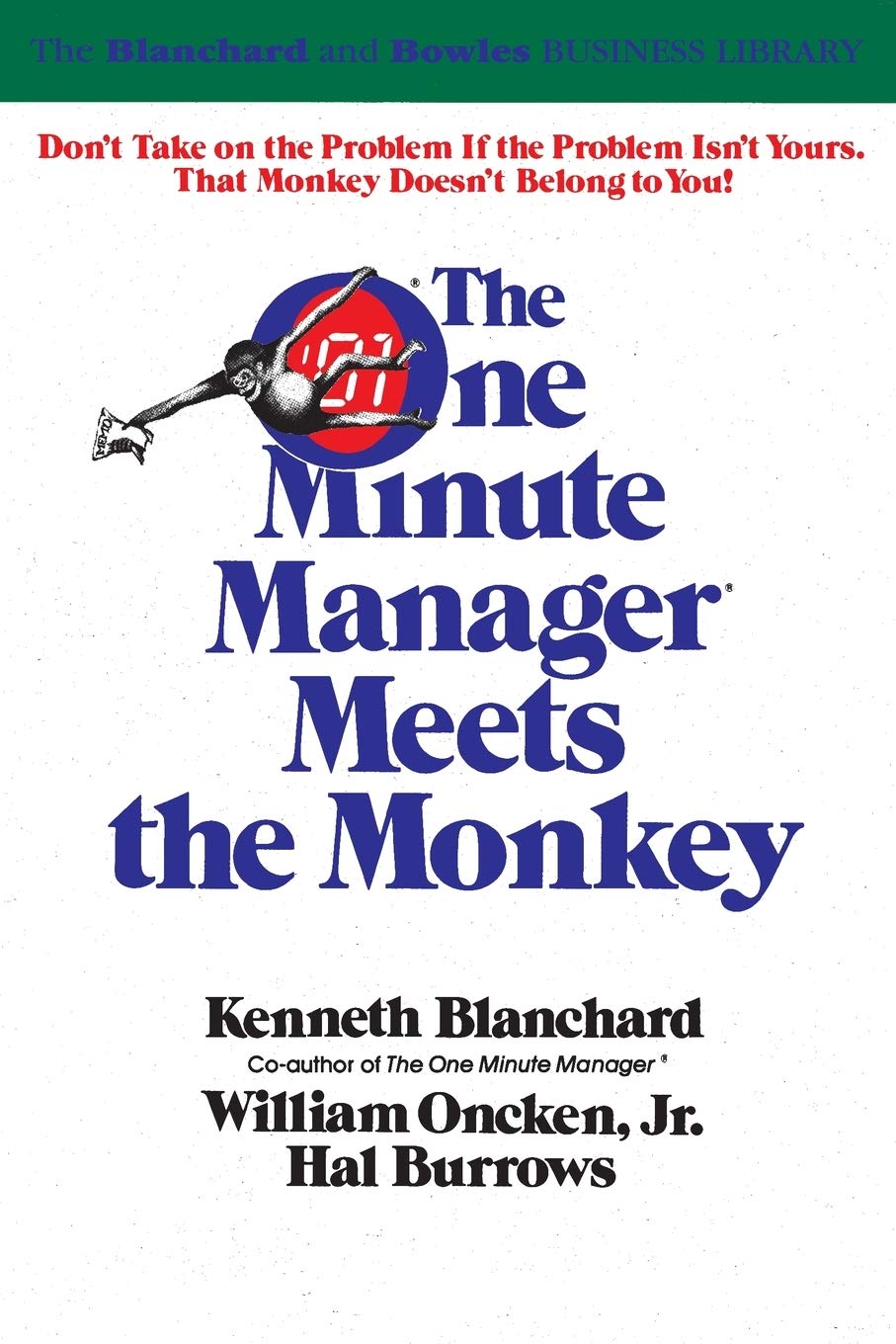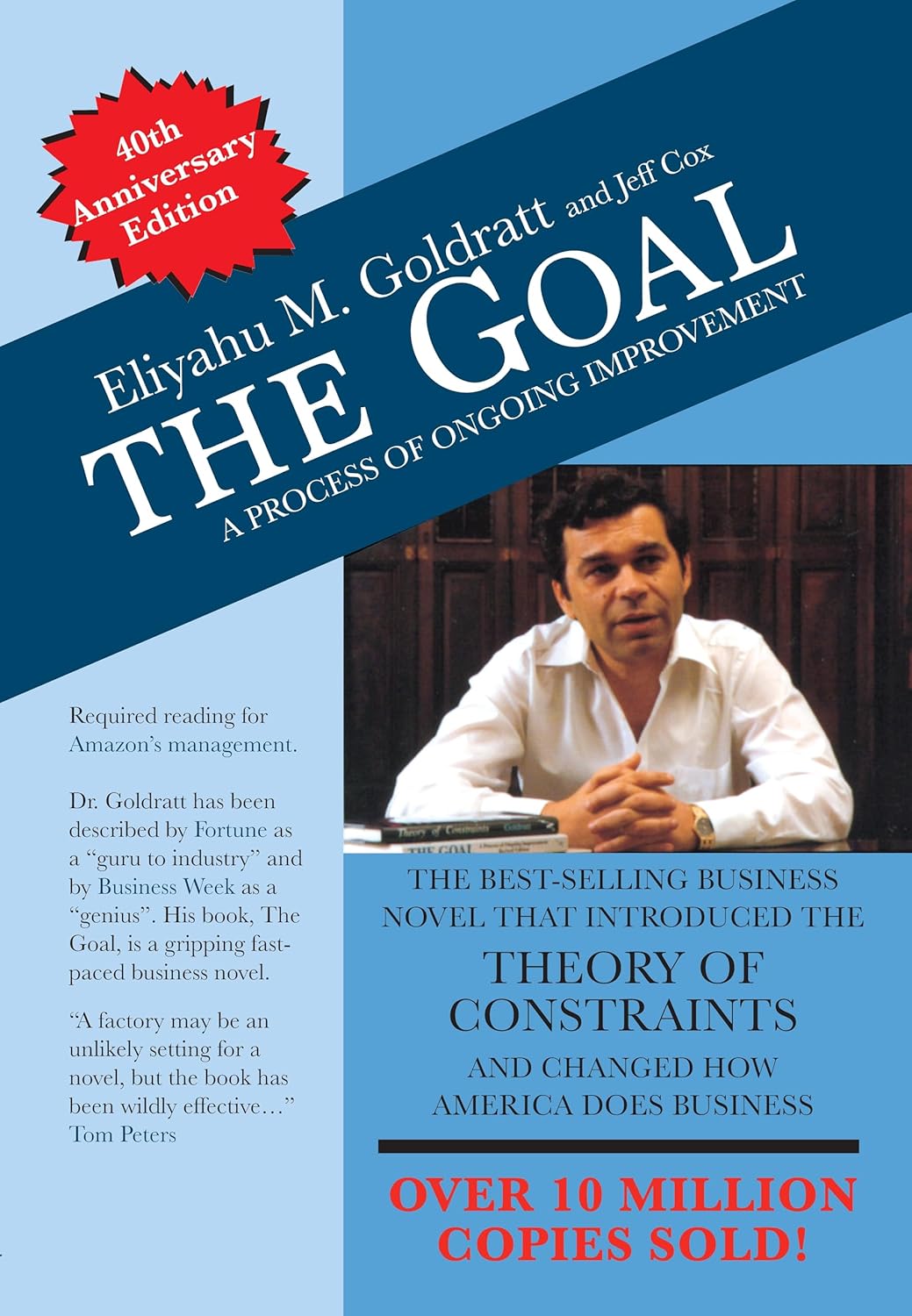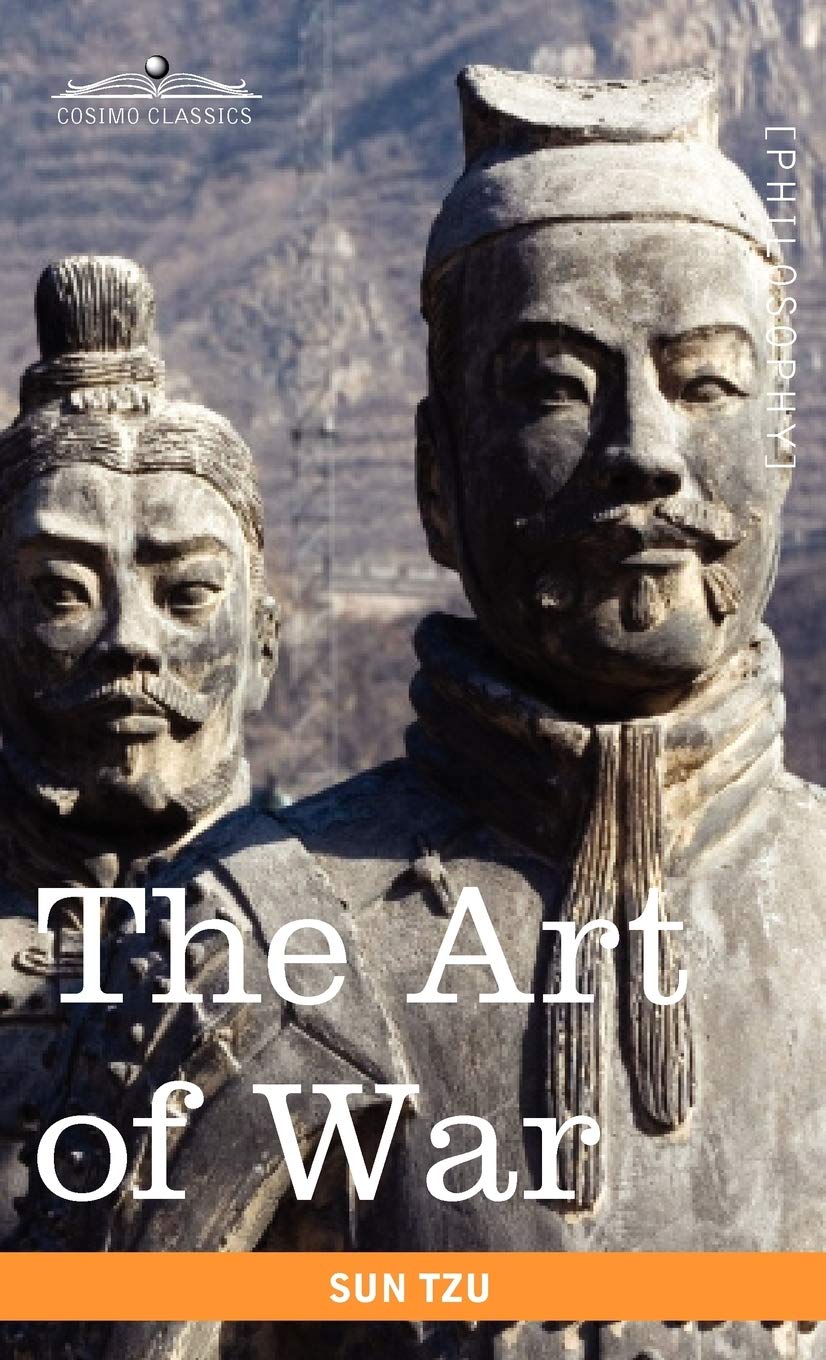Reading can be the difference between a good career and a great one. How are you taking control?
Last week I went all “Joe Negative” with my 5 pieces of bad advice from investment gurus. The goal with that piece wasn’t to be argumentative…it was to help people realize that no advisor is infallible, and although starting with the guru is good, finishing with your own plan is better.
This week, to prove just how optimistically positive I can be, I thought it’d be great to review the top 5 pieces of career advice I’ve ever read from the popular press. Sure, some of these are from pop self help books, but these lessons have proven their weight during my career:
5) The concept of “Move and Fire” – Marine Corps Book of Strategy
While I’ll agree that the concept of business as battle is often overplayed, the idea of “move and fire” is a valuable weapon for a businessperson. Often, I’d want to either respond to a client request or work on improving relationships. By quickening the tempo of my communications with clients, surprising them with data when they didn’t expect it, and advising them on areas where they didn’t realize I was an expert, I was actually able to decrease my overall workload because I wasn’t getting silly requests on client terms. The “battlefield” of my career began to be dictated on my terms.
I also realized that to grow the business I couldn’t be one-faceted. I had to attack from all angles. That’s when my media blitz began and I gathered as many television, radio and print opportunities as possible. By moving and firing, instead of going slowly, I pushed past many people who waited for someone else to throw them a chance.
4) “The past doesn’t equal the future” – Tony Robbins (Awaken the Giant Within)
In business, you need to have a short memory or you’re dead. I saw many workers in all of my jobs (from high school through financial planning) who couldn’t get over the time they’d been passed over for a raise, the undeserved reprimand from a boss, or the tongue lashing from a client. Get over it.
I also experienced a phenomenon with young workers who couldn’t grasp concepts and refused to learn about them. I’d recommend listening to podcasts, reading work related blogs and books, or watching videos. Often, I was surprised to hear, “Yeah, I don’t really do that stuff.” Instead, they seemed to think that it was management’s job to teach everything you need to know to have a successful career.
Don’t wait on your manager to make you great. Just because you weren’t a reader yesterday doesn’t mean you aren’t today. Just because you were loud and brash at work doesn’t mean you have to be tomorrow. Just because you don’t dress appropriately for work doesn’t mean you’ll forget the tie tomorrow. The past doesn’t equal the future indeed.
Another related concept that nearly made this list was Tony Robbin’s assertion that success increases as you make decisions faster. While people often avoid decisions for fear of “being wrong,” Robbins pushes readers to click at a faster rate. Your brain will find ways to make your decisions better.
“I’ve failed more often than the average person has tried.” Donald Trump
Buy it now at Amazon for $12.39.
3) Beware “The Monkey” – Ken Blanchard (One Minute Manager Meets the Monkey)
While the whole One Minute Manager series was a little short on great ideas, the concept of “the monkey” helps great people accomplish more without becoming bogged down in irrelevant tasks.
Here’s the monkey: a co-worker walks into your office with a problem….we’ll call the problem “the monkey.” Instead of saying, “I’ve got a problem I need you to help me with,” co-worker says:
“We have a problem.”
The second that you agree that “we” have a problem, one of the monkey’s arms is around your shoulder. When you say, “I’ll take care of it,” the friend leaves your office and you now own a monkey while the friend is free of the problem.
Once I began to recognize “the monkey” and learned to say, “Let me help YOU with YOUR problem,” my life became much simpler because I never took “the monkey” on my shoulders. I could work on my own monkeys without inadvertently taking on everyone elses’…a common problem for achievers.
Get it now at Amazon for just $9.69.
2) Remember “the Goal” (The Goal)
While the One Minute Manager didn’t wow me, The Goal by Eliyahu Goldratt completely bowled me over. I can explain the concept here in a couple of sentences, but I won’t be able to convey the magnitude of how much this change in perspective increased my ability to achieve. In essence: many people measure results in areas other than the one that matters: throughput. If I can increase the speed of something that doesn’t reach the customer, why do I care? The only job that matters: finding the bottleneck and working on increasing the output through that area of the process.
I often worked with managers and clients who’d complain about a certain department or facet of their plan that wasn’t performing well or workers who didn’t seem to be working as hard as they could. When processes are measured, though, many times these weren’t the areas the manager should be worried about. A manager should worry first about the area which is the bottleneck decreasing throughput. It seems obvious and not really a big deal, doesn’t it? This is #2 on my list because once I read the book (and the follow up, “It’s Not Luck”) my business changed dramatically.
Buy it now at amazon for $21.94.
1) The best battle is the one that’s never fought – Sun Tzu (The Art of War)
Sorry about two “war” books in the same piece, but this one was easily my favorite piece of advice. When I’m at odds with someone I’ve learned that instead of bringing on the fight, are there ways that I can still “win” without fighting at all.
With Sun Tzu’s help I became more proactive. If I could answer potential questions or concerns my clients had BEFORE they occurred, I’d avoid a problem later. I’d also think of any way that my competitors might try to steal my business and make sure that my clients were iron-clad mine. In setting up financial plans I’d imagine all the ways the plan would be tested and raise defenses against them.
Sun Tzu can be found all over my financial planning tips. It’s:
– the reason I’m a stickler on the emergency fund, regardless of the interest rate.
– the single biggest reason my budget for married people focuses on communication, not spreadsheets.
– The reason I start with problems that might occur rather than insurance when dealing with “what if” scenarios.
Get it right now for $13.47 at Amazon.
There they are…my top 5. I’m excited to read your best career advice in the comments below. What should have made my list?






I love favorite book posts! I’ll add these to my “To Read” list. Now, if I could just find the time to pick up a book again 😀
I know! I have to read just before bed and often find that I’m asleep about half a page in….
Have you ever read Good To Great? That’s one that I liked for the perspective on what makes a good company, both in how I contribute, and how we can look at companies in terms of investing.
I love anything by Collins…really engrossing reads. What’s funny is that my fav business writing author, Tom Peters, probably has the biggest body of work I enjoy, but no single idea in any book of his approached these five. Collins reminds me of him, except Peters is more brash and some people get offended by how much he swears in his writing.
I haven’t read any of these books, though I’ve read excerpts from “The Art of War.” I definitely might have to add a couple of these to my “to read” list. Thanks for sharing.
I read a lot of books which means I’m always learning something new — which I love! All the new ideas have opened up my mind to smarter ways to do things, easier systems and better ways to handle my business. I haven’t read (or heard of) any of these books, but the lessons you pulled from them helped them land on my reading list now!
I’m not sure you’ll love the Marine Corps book of Strategy, Carrie. Also, if you have a chance to flip through The Art of War at a bookstore, do so before buying. It’s pretty obtuse. I used to make my team read it during team meetings…and while they liked most of the books we read, they HATED The Art of War.
Thanks for the suggestions! I love Tony Robbins!
I do too. That dude has huge teeth, doesn’t he?
Wow. I think you’ve hit the five top business concepts of all time! Thanks for the reminders. It’s been a while since I’ve read these works and they are as valuable as ever. Cheers!
Wow! That makes me feel good. I’m with Mrs. PoP, though…Good to Great is a good one. Never Eat Alone also barely missed this list. Great book on networking.
Nice reads. This just means that I need to find more time to get the reads done. I think you got most of the good ones and I like how you described each one. Nice work!
Carving out time to read is ridiculously hard. I have a stack of books a mile high waiting for that right moment. When is that coming?
I like that Sun Tzu pick the best.
People fail because they don’t value strategy.
A recent case analysis I read showed a business that spent 60% of their time strategizing. 60%! That seems like overkill, doesn’t it? Their results, though, were huge because when they acted it was nearly always the perfect move with perfect timing.
I’ll have to read The Art of War then; thanks Joe.
The book is a real struggle. I love it, but many people find it really obscure.
Fun fact: guys on dating websites all seem to be reading “The Art of War,” which makes me laugh and roll my eyes. It was required reading for my political degree, but I didn’t love it. I really liked Cal Newport’s book (though it’s twice as long as it needs to be and has too much unnecessary filler, much like this comment) “So Good They Can’t Ignore You” but it’s geared toward the fresh-out-of-college crowd, not the “ready to kick ass and take names” crowd.
Yeah. Anyone who says they’re reading The Art of War isn’t somebody you’d want to hang out with at a party….or online date.
I adore Cal Newport’s blog. Put out an application to review his book when it was released (but no bite, not surprisingly). Must get a hold of a copy!
Anyone who looks past the “do what you know” mentality into the real realm of “why are we successful” has my interest.
I read a great deal, but mostly periodicals when it comes to career/business information. A couple books that has helped me over the years are Psycho-Cybernetics (Maxwell Maltz), What the Dog Saw, Blink, Outliers and The Tipping Point (Malcolm Gladwell). Psycho-Cybernetics is about positive thinking and the Gladwell books are great observations which will make you think.
The Gladwell books are ones that have always gotten away from me. For some reason, after I read about the central theme, I get the feeling like I’ve tackled the book (which I know isn’t the case, but still haven’t read). Psycho-Cybernetics sounds like it’s a book I’d really enjoy.
Fantastic post. I can’t believe how many people today don’t read and never have read more than the required they had to read in high school. Successful people do two things read about the world around them and experience the world around them. I’ve read the Art of War and enjoyed it. I would also recommended 33 strategies of War by Robert Greene
Thanks for the recommendation. That’s another book that’s gone under my radar.
I like that one about the monkey. I find that happens all the time where I work, so I will try out what you suggested and hopefully I won’t end up with a monkey.
It was horrible where I worked, Glen. I was always the guy known as Mr. Get It Done. Therefore, people constantly came to me with their monkeys and I let them…until I read this book.
Great post! #4 definitely hits home with me and I was thinking of writing a post on this very topic. We always hear in finance that past performance doesn’t equal future performance and that’s applicable in every area of life.
One of the best pieces of career advice that I’ve applied to my career, and my life in general is: Evolve or Die. Though I really didn’t appreciate being forced to read “Who Moved my Cheese” when a former company I worked for underwent a massive re-org and I saw colleagues drop like flies, I do realize that I was left standing because I could adapt and move quickly.
That’s funny, Kamara! We were forced to read that book, too. I love the coping message but like you, hated that it was being shoved down my throat.
Great recommendations. My wife could learn from the “monkey” issue. She’s always taking on the petty problems of the people she manages.
That’s my wife, too, Wayne. She’s always taking everyone else’s issues and making them hers. Then again, that’s why everyone likes her.
We have “The Goal” on our bookshelf downstairs, and my wife keeps saying “you should probably read that book, it’s pretty awesome.” Like a dummy I keep forgetting and thinking I don’t have the time. Glad to hear your endorsement, and now I get to go have the “Oh, you’ll listen now that SOMEONE ELSE recommends it??!” conversation. Thanks, Joe. Thanks a lot….
It can be our secret, dude! I won’t tell her. Promise.
Good news about The Goal: it reads like a pretty good novel. If you like business and stories about how someone got a fictional business back on track, you’ll love The Goal. Where Art of War is isn’t a “fun” read, the Goal is the “funnest” on this list.
I will have to add these to my wish list on Amazon. Great words and advice, I especially like the Sun Tzu reference. I’ve experienced that resolving conflict without going to war is the best avenue of approach.
#4 and #1 are probably the quotes that I relate to the most. It’s better to prevent horrible things from happening, like maintenance on a house.
It’s true that #1 and #4 are the defensive measures. If you want to get ahead, move and fire is numero uno.
Joe, I love the reads! Just when I thought I was up to date, you throw me this! I have a pile of books waiting to be read this summer. I cannot wait!!
Great advice here, Joe – thank you! I will put them all on my list. I’m especially excited about The Art of War!
great article, joe. solid advice all the way around.
the sun tzu quote is my favorite because it captures my approach towards business to perfectly. identify the potential problems down the road as quickly as possible, and engineer a solution that will prevent them from ever happening.